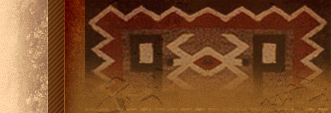 |
 |
| |
Learning in Community |
|
| |
| |
We consider the community-learning processes by which we operate to be one of the most important things we share with others. We have articulated five "tenets" those processes follow, and find that reminding ourselves and others of them during particularly difficult work helps us "hold the center" of what we're doing. They are:
 Each person's voice has value Each person's voice has value
 Diversity produces power Diversity produces power
 Process is more important than outcome Process is more important than outcome
 Understanding flows from many sources Understanding flows from many sources
 Structure is generated by process Structure is generated by process
Interestingly, all these tenets are central to Indigenous systems of learning and have been used for millenia. But within the last 40 years, the same tenets have been independently rediscovered by the education research community, where they are now considered characteristic of "cutting edge" learning situations.
Each person's voice has value.
Tapestry coined the term sophiarchy for this principle because it was so hard to explain to non-Indigenous visitors and collaborators. Despite the presence of this view in the philosophies that undergird democratic government, we have learned that the people who work with us tend to give more attention and credence to the voices of people with certain credentials, of the male gender, and of Western culture. They look for someone to "take authority" in meetings, and to set an agenda and regulate the voices of others. We find that such a built-in heirarchy of power silences important and even essential voices, thereby diminishing the power of the collaborative process and of its possible outcome.We use sophiarchy in our internal governance, research meetings, programs, and events. (Return to top)
Diversity produces power.
Creative strides in our work depend on the collaborative efforts of people from different cultures, races, disciplines, and ways of life. Creative strides in understanding, in a learning situation such as a program or event, likewise depend on the collaborative efforts of people working together to construct meaning. This is a typically Indigenous way of creating community-based knowledge that empowers individuals by helping them develop internal, rather than external, authority. (Return to top)
Process is more important than outcome.
The result, paradoxically, is outcome that is ultimately better and more creative than it would have been otherwise. We have found that when people come to a research meeting, for example, they typically want to be provided with a clear-cut goal for the outcome, toward which they expect to work with single-minded intensity. We find that a focus on the processes -- of understanding the situation we want to address, for example -- helps the group generate extraordinary, creative ideas, some of which solve problems we only identify during the course of the meeting. (Return to top)
Understanding flows from many sources.
We strive to be open to, and encourage the fostering of, dream, imagination, inspiration, analysis, spiritual insight, art, physical experience, story, critical thinking, and other ways of knowing in all our research and education activities. Some of these types of knowledge come from animals, plants, and the Land itself, so opportunities to interact with these sources of wisdom are an important part of all our work. (Return to top)
Structure must be generated by the phenomenon of the process itself, not dictated to the process.
This means that spontanous needs for quiet reflection, a hike, or ritual are honored as powerful elements of the overall process -- just as are spontanous analyses of data or in-depth discussions.Our staff, our team members, and the people who work with us and attend our events are diverse. So the processes we have established for our operations shift and flow as required by circumstances. But they shift and flow within the embrace of these tenets that describe the reality in which we operate. (Return to top) |
|
|
|
|
|
 |
|
|

